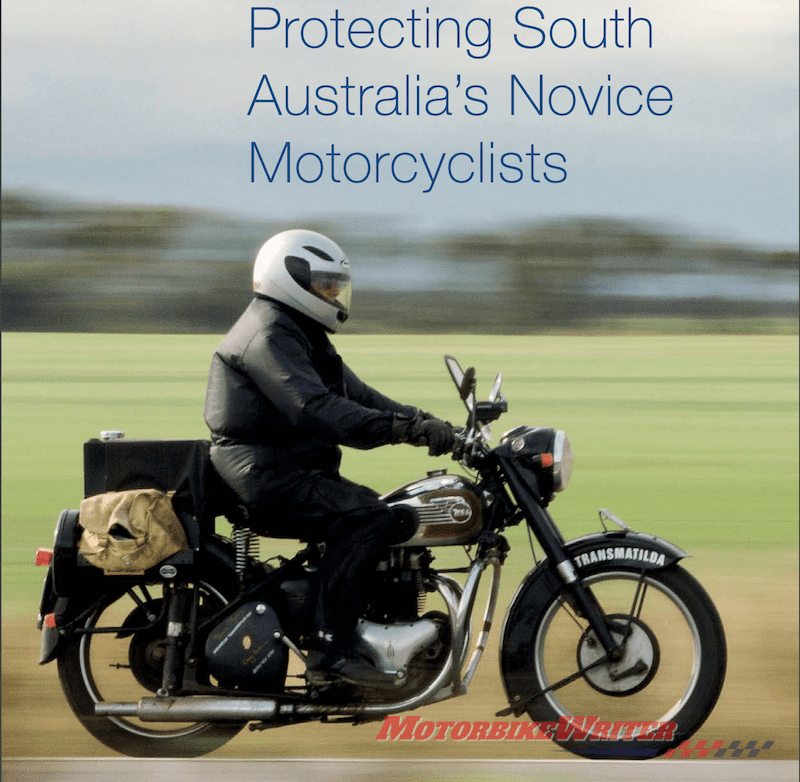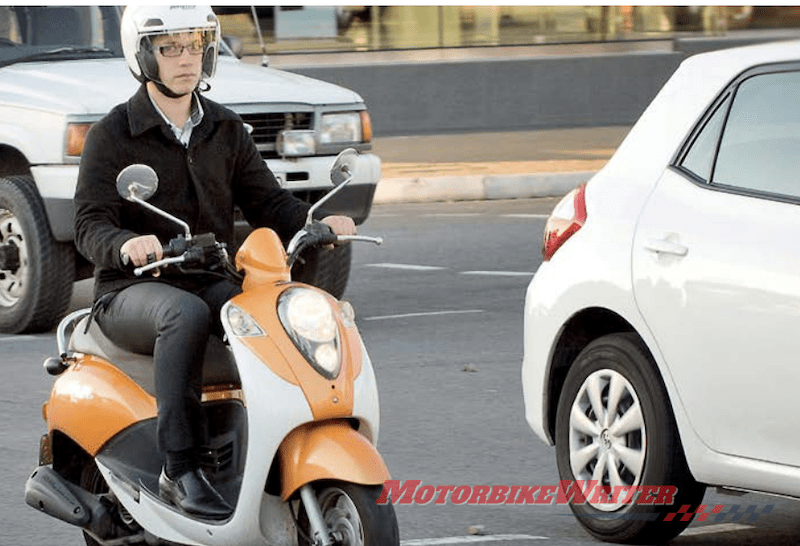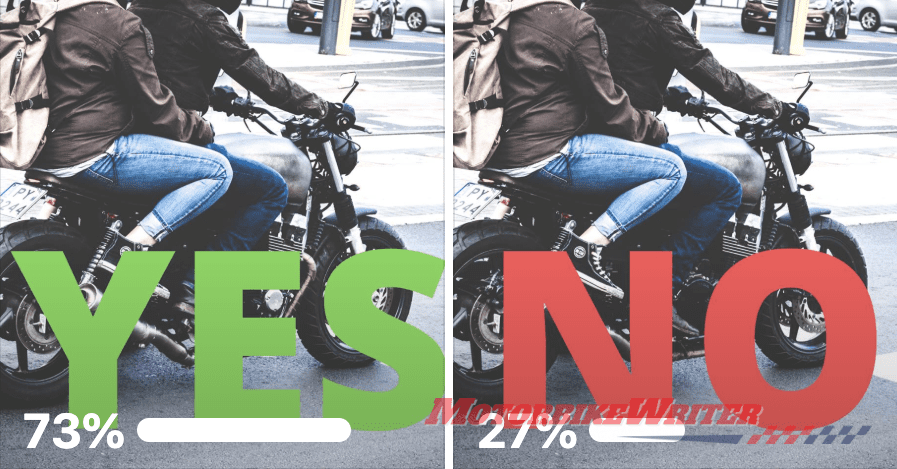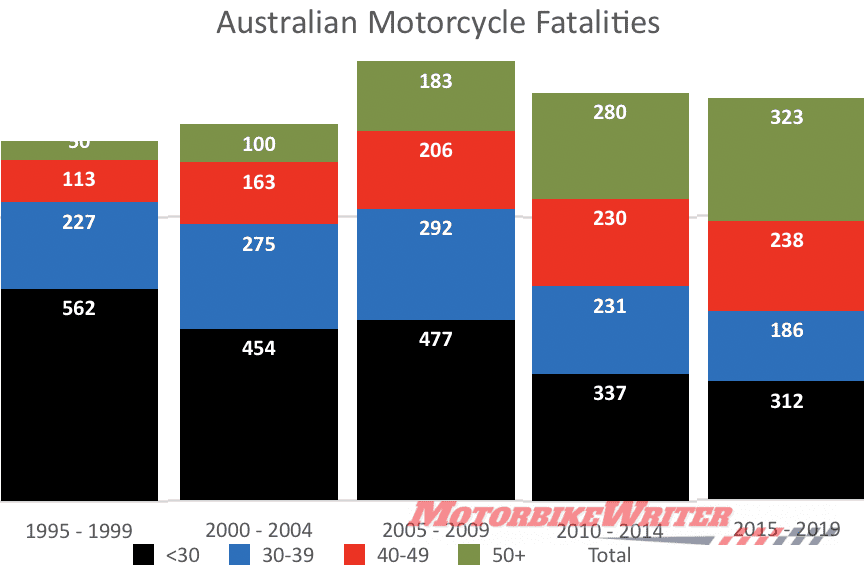Public support for learner riders to first have L-plate car driving experience for one year has been rejected by South Australian riding group Ride to Review.
The plan is part of a licensing review which also recommends lifting the ages for learner riders from 16 to 18 and full-licensed riders from 20 to 21.5.
Tim Kelly of Ride to Review has rejected an ABC Adelaide Facebook poll which found 72% public support for the plan.
He says “no specific evaluation of the measure has yet been undertaken”.
“RTR believe improved rider education and training are the key areas to be development in order to produce safer riders,” he says.
Licensing laws
The only other state with similar licensing laws is Queensland where learner riders must have held a provisional, P1, P2 or open car licence for a year since 2007. South Australia’s suggestion is that riders must only have a learner plate for a year.
It runs contrary to practices in countries such as Italy where 15-year-olds can first ride a two-wheeler up to 50cc before getting a car or motorcycle licence.
Proponents say it gives young motorists more road awareness and makes them more aware of motorcyclists on the road when they get old enough to obtain a licence.
On the other hand, modern cars are so safe with crash cells, stability control and various driver aids and warnings that they may give young drivers a false sense of invincibility.
It may also lead drivers to ignore vulnerable road users such as motorcyclists who pose no danger to them, leading to SMIDSY crashes.
Federal Chamber of Automotive Industries (FCAI) motorcycle spokesman Rhys Griffiths says tougher licensing laws across the nation have put the motorcycle industry under “more pressure than we’ve ever had in the past”.
He says the tougher licensing laws have dramatically increased the price of obtaining a motorcycle licence and may have led to an increase in unlicensed riding.
Fatal statistics
National statistics from 1995 to 2019 show a steady decrease in fatalities among under 30-year-old riders from 562 in the five-year period from 1995 to ’99 to 312 from 2015 to ’19.
Over the past five years, under 30s have not had the largest number of fatalities, being overtaken for the first time by over 50s with 323 deaths.
This could be the result of tougher licensing laws.
However, it could also be due to the fact that the number of young riders getting licenses has declined while the number of returned riders has increased.
The statistical trends are similar in all states including Queensland and South Australia where under-30s fatalities have halved since 1995.
Motorcycle Riders’ Association of Queensland President Chris Mearns says the efficacy of the car licence requirement is “very questionable”.
He doubts it has any effect on serious crash rates “given that the main age groups involved in these incidents are not those that are effected by the requirement” as shown in the above statistics.
“Add to this that the average age of a newly licensed rider is in their 30s with these already holding an open car licence hence not being effected by the requirement and the effectiveness is very questionable,” he says.
Licence review



The South Australian review of the Graduated Licensing System was undertaken by the University of Adelaide’s Centre for Automotive Safety Research (CASR).
The 15 key recommendations included increasing rider age to reduce the crashes involving 16- and 17-year-old riders and reducing crashes involving motorcyclists holding a learner permit or R-Date licence class.
Under the recommendations, pre-learner and learner age would be lifted from 16 to 18 and unrestricted licence from 20 to 21 and six months.
Other recommendations include displaying correct plates, restricting pillions, mandatory carriage of licence, a night curfew, zero blood alcohol, a lower demerit point threshold for disqualification, no mobile phones and hi-vis vests for novices as in Victoria.
A total of 1553 participants responded to the consultation, while key road safety stakeholders, motorcycling industry representatives and other interested parties provided feedback through formal submissions.
The consultation outcomes report Protecting South Australia’s Novice Motorcyclists: Outcomes from Public Consultation outlines the feedback from the community and stakeholders.





